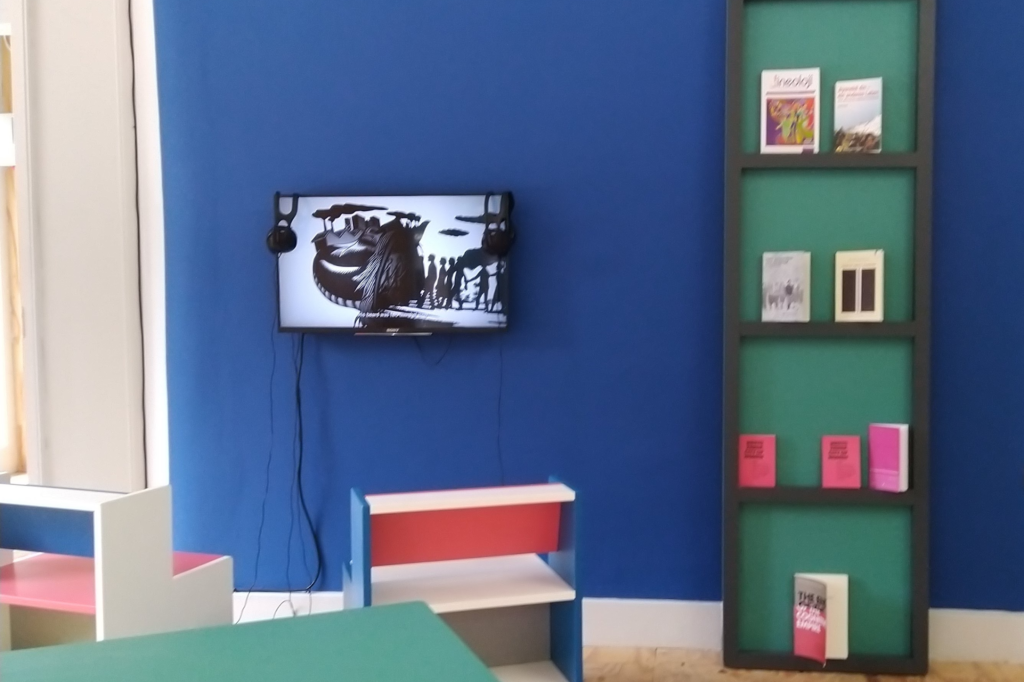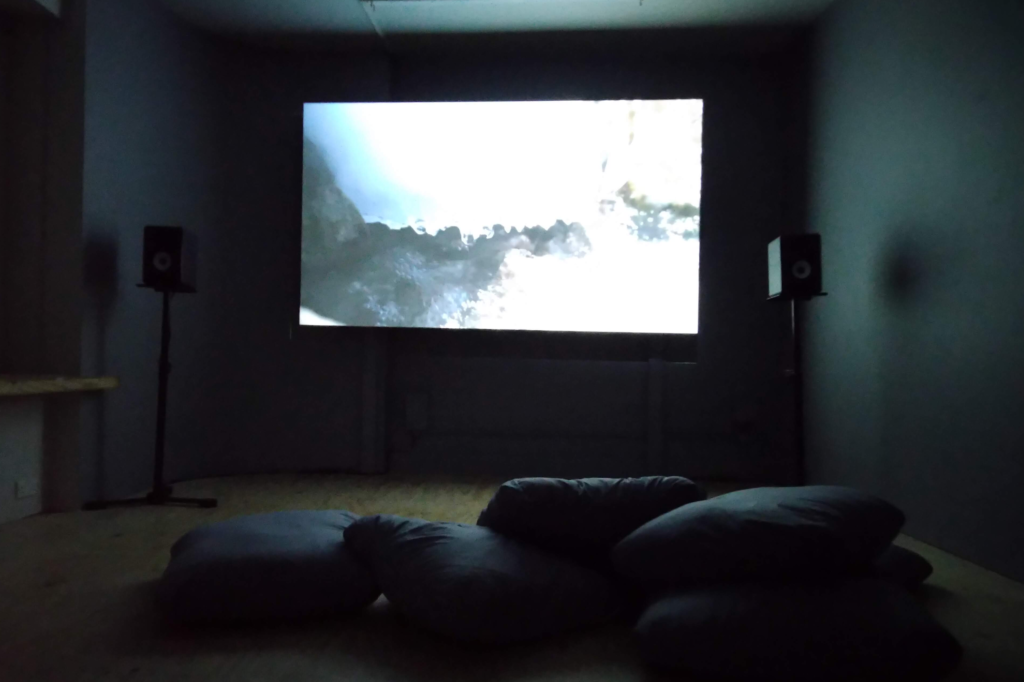



Dates:23 May – 3 Aug 2019
Artists: Marwa Arsanios, Paloma Polo, Lorenzo Sandoval, They Are Here
I’m sitting in front of my laptop to type this review. In front of my laptop at a well-equipped common space at my university. In the UK. Where I am pursuing a Master’s degree. And as I opened my laptop here, today, I believed that I had agency. I saw my individual journey, my immediate surroundings, my imagined future and saw a battle against oppressive structures that I seemed to be winning. Until Towards the Planetary Commons burst my bubble of delusion with ease.
Hosted by Arts Catalyst, London, Towards the Planetary Commons is an exhibition that investigates “agency and autonomy in the face of global ecological crises”. Through visual, auditory, and tactile elements, visitors are allowed to completely immerse themselves in the theme of the project. While Marwa Arsanios’ and Paloma Polo’s films pull the visitor headlong into contemporary ecopolitical struggles and local modes of resistance, the “living room”, featuring installations by Lorenzo Sandoval and They Are Here, draws the visitor back out to confront their own reality, and to become a part of a collective movement. The gallery is thus transformed, from a site of mere observation and reflection, to one where knowledge is produced and actions initiated.
I take my hands off the keyboard and look around. The vending machine behind me whirrs, begging me to unburden it of the many Coca-Cola cans that inhabit it. A black plastic bin bag peeps out of the bin, hiding not too subtly an alarming future. Fluorescent lights glimmer, suddenly making it impossible for me to forget the material excess that surrounds me. My eyes turn to the windows for respite. Trees. The peaceful green expanse of the South Downs is however failing to put my mind at ease. I am forced to confront not only my complicity in furthering destructive modes of consumerism and governance, but also the inadequacy of my individual acts of resistance thus far. In purchasing my reusable coffee cup, or researching alone the nuances of development work, I have, unfortunately, anchored myself to myopic individualism.
Towards the Planetary Commons spans across two rooms. The “living room”, with its huge windows and brightly coloured interiors is inevitably where the visitor is drawn into first. Lorenzo Sandoval’s site-specific modular environment hosts an exciting and very international array of research material on ecofeminism, agriculture, geopolitics, and related movements. Featured on the wall is Paloma Polo’s animation work, What is Thought in the Thought of People, made in collaboration with Leonilo Doloricon. Becoming Planetary, a soundwork by They Are Here persists in the background and it is a struggle to find firm footing in an environment as stimulating as this. Next door, in a sparsely furnished room Marwa Arsanios’s films Who is Afraid of Ideology? Part 1 and Who is Afraid of Ideology? Part 2, play in a loop—each around 30 minutes long. There are no ‘blurbs’ on the walls of the rooms, no explanations offered, and it is clear that nothing here is ‘on display’. The environment makes evident the overarching theme of the works and curiosity compels one to sit down and dig deeper.


Critiquing the destructive neoliberal policies undertaken by corporations and governments, Towards the Planetary Commons offers its viewers a chance to evaluate their lack of agency within an inherently exploitative system and to discover resistance through self governance and autonomy. While Polo’s work, alongside Doloricon’s hauntingly poetic imagery, peels back the layers of an ongoing democratic struggle in the countryside of the Philippines, Arsanios’s films leverage a highly nuanced narrative style to shed light on the means of knowledge production within the autonomous women’s movements and ecofeminist groups in Syria. The context for the exhibition is thus a global one, with the “living room” bridging the gap between the stories on the screens and its material presence in central London. The indelible impact Towards the Planetary Commons leaves on its viewers is as much a result of adept curation as it is of the rich reserve of knowledge and personal expertise brought in by the individual artists.
I cast my mind back. Confronted by the thus far unfamiliar task of using an axe, a woman in Arsanios’ Who is Afraid of Ideology? Part 1 had told me of the day she “realized all the things that were stolen from us”. The images on the screen, in turn, had transfixed me. Mountains and mud, women in the kitchen, women building a village, women with weapons, animals roaming, a book of plants. Arsanios’s raw and deliberately visible editing techniques had forced me to ask, how is knowledge produced?, who has autonomy?, who is afraid of ideology?. I see my blurred reflection on the now black screen of my laptop and this time I see the history of feminist struggle, a tenaciously postcolonial identity, a long list of neo-liberal policies and a longer list of ‘collateral damage’. I see a collective.
As an exhibition, Towards the Planetary Commons, is unique in its multi-layered approach to addressing knowledge production. The shared resources, the “living room”, and the workshops organised in tandem with the exhibition are a fantastic attempt at making expert knowledge accessible. The exhibition is part of Arts Catalyst’s Test Sites programme, the model of which intends to “foster an ecology of practices, in which artists, curators, scientists, specialist experts and people with situated knowledge come together to co-produce knowledge around a shared matter of concern”.
As a curatorial practice, this is an exciting step forward and pushes the remit of curatorial activism. With the films featuring two distinct geo-political contexts, the viewer, however, must be wary of ignoring the historical inequalities that persist in these contexts and the power structures that dictated the work’s presence within a gallery in the UK. It is also important to acknowledge the theoretically heavy content of Who is Afraid of Ideology? Part 1 and the improbability of most visitors being able to truly utilise the research materials. Experiencing Towards the Planetary Commons is certainly not a leisurely exercise for a weekday lunch-break. But perhaps, its virtue is in the commitment it demands from its visitors, and its ability to shake us out of our absentmindedness in occupying a world that demands our attention.
Now I will stop typing and start reading, and listening. Droughts, floods, systemic oppression. It is time to feel and become part of the collective resistance.